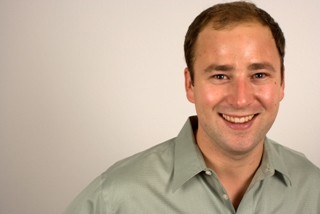100 Brains: Owen Tripp and ReputationDefender put an end to privacy 'debate'


Q. I imagine that ReputationDefender is booming considering all of the attention on online safety and reputation management now. Have you seen an uptick in memberships over the last year?
A. It's been an amazing year. It's fun to watch memberships flow in from all kinds of new user types. I am seeing moms joining so they can look out for their teens online and physicians interested in protecting the reputations of their practice in an online review-driven world. Cooler still, we're finding that the mom and the physician are one in the same person -- and we have to be able to meet both of her goals online. It presents a fun product challenge for us!
Q. What is it about your service that makes it work better than manual or other approaches? Do you compete at all with social monitoring services and how do you differentiate yourself?
A. Since Michael (Fertik) and I started the company in 2006, I think we've focused on a few things that make us different: search algorithms that allow us to go deeper and make more sense of our users' online content; powerful tools that go beyond monitoring and actually protect you (too many other tools are just hyped up Google Alerts!); and a willingness to staff expert customer support around the clock.
Q. What do you think are some of the bigger mistakes people make online when trying to manage / monitor their reputations?
A. There are two mistakes that I see far too often. First, people try to outwit or debate their detractors online. This is a losing strategy -- every time! Because of anonymity and the lack of basic "face-to-face" decorum, people resort to their worst selves when debating online. It basically ends up making just about everybody involved look like a jerk, even when there's a set of untruths being perpetuated.
Q. Do you think it's possible to provide enough education so that users make smarter online decisions, or is it the usual case of security that it's not convenient so people prefer to be oblivious?
A. It's a good question. Our answer is that we have to get people to experience the "reputation and privacy management story" little bits at a time so they can understand all of the ways that personal data are viewed online. Ultimately we know that everybody needs to understand some piece of how this affects their life. We are introducing three new free tools that allow people to engage with their personal data, understand how it's being used to make decisions about them and review options for taking action.
Q. Can you give me an example of how reputation management has really helped a person or a company avoid a bigger disaster?
A. This week I met a customer of ours who had been using our monitoring service for many month. We alerted her to the presence of some comments made by an angry former employee, writing that she "drank too much" and was "abusive at home" -- cheap lies designed to bring down her business. Our customer was in the middle of pitching a school district on new after school programs that her consulting company could offer, and she knew that the school district was going to search her online to understand more about her programs. We were able to proactively manage the appearance of the comments so that she didn't have to explain them to the school district. In fact, those false results never even showed up. The story reminds me how important it is to monitor what's out there about you online since that online data always seems to intersect how decisions are made about you in the offline world.
Q. Do more people sign on for reputation management reactively or proactively?
A. In the early days of the company, most of our customers came to us for help solving their online problems. Now we see that most of our new customers are interested in staying protected and improving their online presence constantly.
Q. Reputation Defender was named a World Economic Forum Technology Pioneer -- what do you think this means on a larger scale for not only your company, but for your field overall?
A. It's a great honor. In 2009, the world woke up to the privacy conversation (Facebook changing their default settings, data breaches of health data at major insurance companies, etc.). Now, in 2010, the discussion has shifted towards potential solutions and how we answer the question: what tool can we use to manage how our personal data shows up online? And what remedy do we as individuals have in a world where the predominant online business models -- social media, content, advertising and eCommerce -- all depend on vast amounts of our personal data?
Q. Finally, what's one thing you want to make sure readers know about the web, social, etc.?
A. It's not all fun and games! Best to be aware of the data you leave behind when using social tools. That way you can enjoy the enjoy the convenience and entertainment of these tools... without suffering the privacy hangover later!